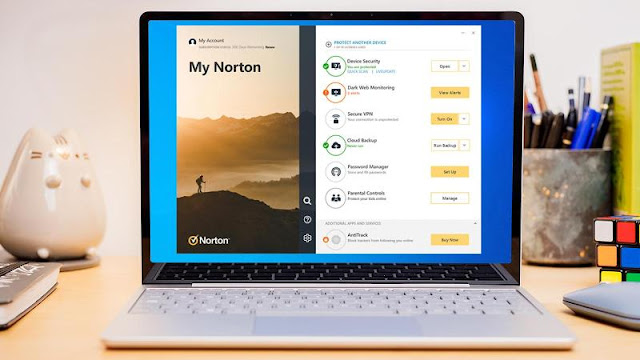With attractive prices for protecting 10 devices, BullGuard is a worthy alternative to its rivals. Here's our review of Premium Protection 2020.
Should I Buy BullGuard Premium Protection?
Our Verdict
- BullGuard is a good choice for malware protection if you have quite a few devices to protect. It also includes some nice parental control and identity protection features. It doesn't include a VPN - that's a separate service - but it's good value for families with up to 10 computers and phones.
Price When Reviewed
- $29.98 (1 year), $47.98 (2 years), $59.98) (3 years)
We've been impressed with BullGuard Premium Protection over the years, and it's even better now. It's the company's flagship product which means you get all the features including a home network scanner (to seek out any vulnerabilities in your IoT devices), cloud backup, a secure web browser and comprehensive identity protection.
The Secure Browser is new for the 2020 version, and identity protection has been beefed up with searches on many more websites, plus it's now available in 13 countries.
How Much Does BullGuard Premium Protection Cost?
BullGuard Premium Protection 2020 costs £69.95 / $99.95 per year for a whopping 10 devices including iOS, Mac, PC and Android, which should be plenty for even the largest family.
That brings the price right down to £28 / $39.98. You can save more by committing to two or three years at checkout, too.
The next tier down is BullGuard Internet Security for £24.99 / $29.98 (three devices, one year). This omits the Home Network Scanner and Identity Protection modules, but provides everything else. At the current price, it's actually cheaper to go for the Premium option.
At the bottom of the pile, there's also BullGuard Antivirus for £19.96/$23.96 (one device, one year), which further omits Firewall, Secure Browser, PC Tuneup and backup modules.
The Premium version compares pretty well with rivals for the price and features it provides. For antivirus buying advice and alternative choice, read our round-up of the best antivirus.
Features And Interface
BullGuard's user interface has a slightly technical feel to it, but this does give it a comprehensive feel. Pull-down lists for each category select the required functionality. For example, under Antivirus, you can select three types of scan, examine what's in quarantine, and access settings.
Along with the antivirus module, which features advanced heuristic detection of unknown malware (including ransomware), there's a useful vulnerability scanner. This alerts you to missing security updates, insecure connections, and incorrect digital signatures contained within downloaded packages. Signatures prove that a piece of software is what it says it is, so checking them is vital.
Noticeable by its omission is the lack of a dedicated anti-ransomware module. As mentioned above, such protection is integrated into the antivirus module, but the ability to nominate folders that should explicitly be protected from changes would be good to see.
Clicking identity protection takes you to your online BullGuard account. Here, you can enter details such as your name, email address, bank and credit card account details, and so on. BullGuard will then search thousands of sites - including those on the dark web - for those details so that you know if your data has been leaked. You'll receive advice about what to do next if there's a problem, which is a genuinely useful function.
The Parental Control module allows you to watch your children's use of mobile devices. You can see all the phone calls, messages, and pictures sent and received on a protected device, as well as track its location. At a time when kids have more digital freedom than ever, this offers control and some peace of mind.
For gamers, there's nothing worse than popups at the critical moment. The Game Booster blocks these and optimises CPU performance. Running on a new gaming laptop, you may notice no difference when playing demanding games on a PC equipped with a beefy GPU, but older machines may receive a noticeable performance boost.
There's also a very useful PC Tuneup facility that will defragment your Registry, clear browser caches, clean up temporary files, and keep your PC starting up and running as fast as possible. Unlike some other products, this doesn't also delete your browser cookies and log you out of all your accounts.
For some people, the real star of the show is the Home Network Scanner. This examines your connected devices (including connected thermostats, baby monitors, and other IoT devices) for vulnerabilities.
When browsing the web, you now have the option to use the Secure Browser. This isn't an add-on for your current web browser, but a standalone app which is designed to give you the best-possible protection from all sorts of web-based attacks, plus prevent your financial details being stolen when buying goods or using banking sites.
In a regular browser, there is still some protection: safe links in search results are indicated with a green tick logo appearing next to them.
The latest AV-Test results from November-December 2019 show that BullGuard is right up with the best security software, scoring virtually perfectly for both known and unknown malware. Unfortunately, neither of the other two main test houses - AV Comparatives and SE Labs - has tested BullGuard.
BullGuard Mobile Security
You can download BullGuard on Android and iOS. The Android version is a no-nonsense offering. All the usual facilities are here: antivirus, parental control, antitheft and cloud backup.
The antitheft module allows you to locate the device, perform a remote backup of all data, wipe it and even make it "scream" that it's stolen. The call manager is still included, but tapping it results in a message that changes to Android mean that non-system apps cannot manage call functionality.
Conclusion
Overall, BullGuard is a solid choice. It is not the most fully-featured security suite out there, but remains good value. We're yet to be impressed by any VPN service bundled with antivirus software, so its absence here is not a deal-breaker.
Ransomware detection may be covered by its heuristic scanner, but something explicit like the data vault of Kaspersky Total Security or the Folder Shield of Trend Micro, would give it a definite advantage, given the the generous number of permitted installs.

















0 comments:
Post a Comment